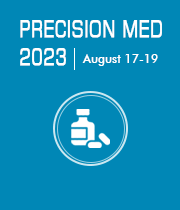Disease Prevention Strategies and Medical Treatments
Disease prevention is a process in which people, particularly those who have risk factors for a disease, are treated in an attempt to avoid getting sick. Treatment usually begins either before or shortly after the first signs and symptoms of the disease appear. Patient education, lifestyle changes, and medication are all options for treatment. Disease management is the concept of lowering health-care expenditures and enhancing quality of life for those who have chronic diseases by preventing or mitigating disease consequences through integrated treatment. Disease management is a set of coordinated health-care activities and communications for specific patient populations with conditions that can be managed with self-care. Individuals with disease management engage with other health care experts to manage their disease and avoid complications.
- Primordial Prevention
- Primary Prevention
- Secondary Prevention
- Tertiary Prevention
- Quaternary Prevention

Bernd Blobel
University of Regensburg, Germany
Roy Gary Beran
University of New South Wales, Australia
Matthias Schwab
University of Tubingen, Germany
Thomas Webster
Interstellar Therapeutics, United States
Boris Tankhilevich
Magtera, Inc., United States
Isabella Friis Jorgensen
University of Copenhagen, Denmark


Title : The use of anti seizure medication therapeutic blood level determination to personalise the treatment of epileptic seizures especially in patients attending the accident and emergency department
Roy Gary Beran, University of New South Wales, Australia
Title : Personalized and precision medicine (PPM) can be established as a unique healthcare model through biodesign-driven and inspired biotech, translational applications. This approach aims to ensure human healthcare, wellness, and biosafety.
Sergey Suchkov, Institute for Biotech & Global Health of RosBioTech and A.I. Evdokimov MGMSU, Russian Federation
Title : Monitoring folds localization in ultra-thin transition metal dichalcogenides using optical harmonic generation
Ahmed Raza Khan, Australian National University, Australia
Title : A systematic review of regulatory approaches for Direct- To- Consumers (DTC) genetic testing
Kavitha Palaniappan, Duke-NUS Medical School, Singapore
Title : Regulatory framework of in vitro diagnostic and artificial intelligence for precision medicine
Pei Ting Sarah Chou, Regulatory Affairs Professionals Society, Taiwan
Title : Unraveling cancer stem cell signatures in circulating tumor cells of metastatic colorectal cancer: Investigating ALDH1A1 and the repurposing potential of disulfiram via scRNA-seq
Nurul Syakima Ab Mutalib, Universiti Kebangsaan Malaysia, Malaysia